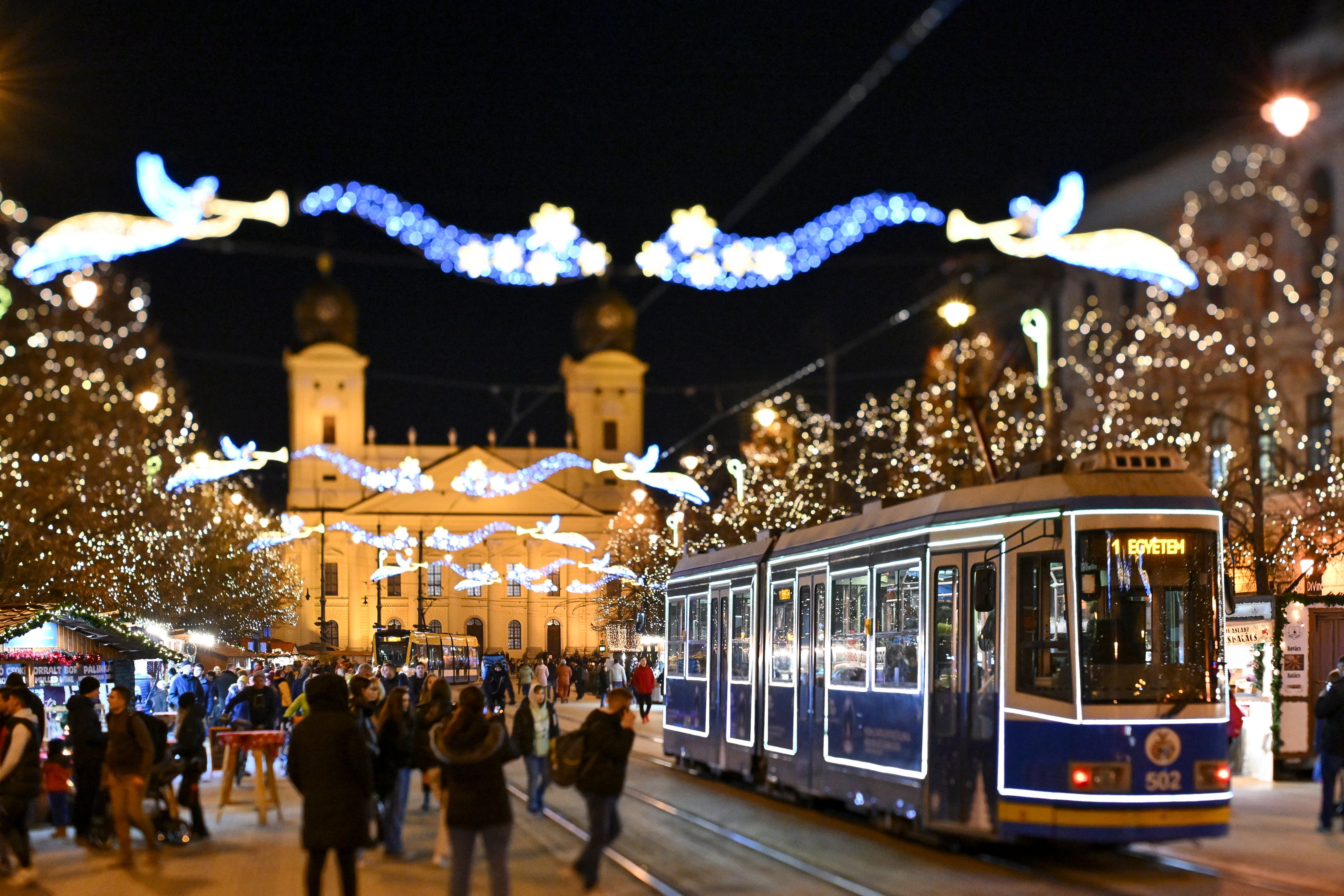Inflation is pinching Hungary's popular Christmas markets. $23 sausage dog, anyone?
A cost-of-living crisis in Hungary is on display at the country's popular Christmas markets

On a cold night in Hungary's capital, shoppers at one of Europe's most famous outdoor Christmas markets browsed through food stalls of steaming local specialties and sipped from paper cups of hot mulled wine. A holiday light show played on the facade of the St. Stephen’s Basilica.
But despite the Christmas cheer, a cost-of-living crisis in the Central European country means that many Hungarians and tourists alike are getting sticker shock at the beloved annual markets.
A bowl of Hungary’s trademark goulash soup for $12. Stuffed cabbage for more than $18. A sausage hot dog for $23. Such were the prices on Monday at the bustling Budapest square. In a country where the median net wage is below $900 per month, the ballooning costs have left some Hungarians feeling that the markets aren't priced for them.
“This isn’t designed for Hungarian wallets,” said Margit Varga, a first-time visitor from the southern city of Pecs. “The prices are simply unreal, regardless of whether it's for tourists or for Hungarians.”
The price of food at the popular Advent Bazilika market, and at the nearby market on Vorosmarty Square, have caused a wave of coverage in local media in recent weeks. Some outlets compared prices to similar markets in wealthier Vienna, less than three hours away by train, and found some Budapest food items to be more expensive.
Ami Sindhar, a 29-year-old visitor from London, said she'd recently visited a Christmas market in Cologne, Germany, and found that food at the Budapest market was "a lot more expensive.”
“The atmosphere is great here, but the food prices...,” she said after finishing a cup of mulled wine with friends. “I think it’s a shame for the locals ... When there’s a beautiful market like this, you want the locals to be able to go as well as all the tourists.”
While Christmas markets are generally targeted toward foreign visitors and often carry a premium for their festive atmosphere, other factors in Hungary are inflating costs.
The economy ended four straight quarters of contraction in September, and skyrocketing prices have plagued the country for the last two years. Hungary had the highest inflation in the 27-nation European Union for most of 2023, peaking at over 25%.
Food prices in particular have seen a dramatic increase. Hungary began the year with grocery prices surging nearly 50% compared to a year earlier, according to the EU statistical office Eurostat. While the rate of growth has slowed significantly in recent months, the high costs have persisted.
Lajos Hild, a retiree who visited the Advent Bazilika market on Monday, said he couldn't get used to what it costs to sample some Christmas favorites.
“When I was a child and I went to buy chestnuts, I could have bought the whole stand, along with the seller, for a quarter of the price that they cost now,” he said.
In an effort to broaden options for less wealthy visitors, food sellers at both of Budapest's Christmas markets are required to offer a rotating daily menu for 1,500 forints ($4.25). To wash it down, a cup of hot mulled wine goes for around $3.80.
Still, Sindhar, the tourist, said she worried some locals still might find themselves priced out of the holiday experience.
“I would imagine that there’s quite a discrepancy between how much they’re earning ... compared to if they were to come to the market," she said.
Subscribe to Independent Premium to bookmark this article
Want to bookmark your favourite articles and stories to read or reference later? Start your Independent Premium subscription today.
